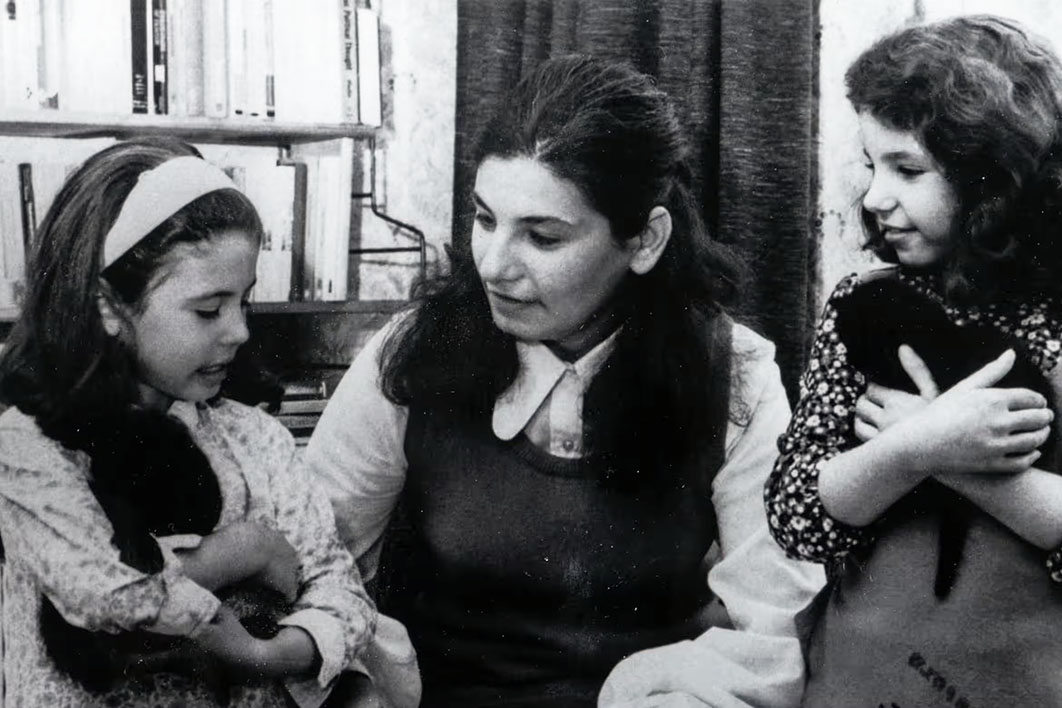When her mother killed herself at the age of seventy-five, Natasha Walter suffered more than the usual burden of filial guilt. Ruth had frequently talked of suicide, but Natasha hadn’t always listened, brushing off warnings with a mix of impatience and anxious deflection. In retrospect there were other signs: jewellery given away, an unexpected family lunch convened, frequent laments about developing unendurable dementia.
Walter, a British feminist writer and activist, has written an evocative book, Before the Light Fades, that begins as an exploration of the emotional aftermath and turns into an examination of the lives of Ruth and her refugee parents. At first her grief is raw, turning her into “a little scuttling mollusc without armour.” It is compounded by the lingering stigma of suicide, which somehow coexists with a new cultural openness to talking about it.
Walter struggles against the view that her mother had the worst kind of death and that her suicide could only be attributed to mental illness. She bristles at the modern tendency to see all dark emotions through a psychiatric lens, but also worries that towards the end Ruth was in a state of despair rather than Socratic composure.
Friends who use the well-meaning but “off the shelf” language of self-care to comfort her provoke the same irritation. She tries out a range of healing distractions — yoga, swimming, running, gardening — but the idea that we should soothe and coddle ourselves in times of loss seems to her self-absorbed and alien to the generation that is being lost.
The book’s account of the changing seasons of grief is intense and unsparing. Walter has tears, self-reproach and regret, as our current bereavement script leads us to expect, but also times of anger, bitterness and misanthropy. Mourning does not always deepen or ennoble. At times it leads her to resent the living and become hardened, cauterising her empathy to stem the flow of pain. “I am becoming less human, the more I grieve.”
Walter captures the experience of having an ageing parent beautifully. Her relationship with Ruth is about as solid and unambivalent as two strong personalities can have, but she confesses to having experienced a growing annoyance with her mother’s growing vulnerability. Ruth’s preoccupation with dementia, amplified by experiencing her own father’s illness and her work in aged care, seemed out of proportion. Walter is saddened by the loss of Ruth’s independence, fearlessness and rebellious spirit, but her sadness is mingled with an implied criticism of her slide into weakness, as if Ruth should have tried harder to embody the maternal ideal she represented as a younger woman.
Walter reclaims that younger self in a compelling retelling of Ruth’s past, from the horror of her parents’ early life as Jews in Nazi Germany, to their circuitous escape into an unwelcoming England that sent them to internment camps, their shrinking into postwar suburban anonymity, and their upset when the young Ruth resurrects her father’s abandoned radicalism in the fight for nuclear disarmament in the 1960s. Georg knew where dissent could lead.
Ruth’s involvement in Bertrand Russell’s Committee of 100 is a mix of clerical tedium — so much typing, copying and mailing — and daring escapades, peaking when she helps uncover evidence that the British government had built bunkers to house the great and good in the event of nuclear apocalypse.
Ruth’s politics extended beyond the nuclear issue, leading her into a brand of feminism that would later conflict with her daughter’s. Walter recounts how the power feminism she embraced in the 1980s rejected Ruth’s critique of femininity. She believed she could remain glamorous while the last few glass ceilings were quickly shattered. That former self was naive, Walter writes, failing to anticipate that “objectification would be sold back to us as an empty mirage of empowerment.”
This realisation becomes part of a broader and more sympathetic re-evaluation of Ruth’s unorthodox and sometimes puzzling life choices. Even the suicide becomes intelligible, “like leaving a party when you’ve had enough.”
Before the Light Fades reveals not only the courage and creativity of Ruth’s generation of protesters, but also how the disarmament movement’s mission to avert global disaster is echoed in the climate emergency movement of today. Ruth herself comes across as a free spirit who retained her own parents’ sense of displacement and never became entirely settled. Marriage to a fellow activist burns brightly for a while but ends badly. She throws herself into study, social work with refugees, and being a mother and grandmother: “the myth maker of the family, the one who told us who we were.”
Walter’s writerly voice is distinctive without being showy: she is humane, curious and allergic to cliché, but also sceptical, half in the world and half on the sidelines looking askance. She is a deep thinker but not a wallower or a theorist. As her grief starts to lift, she recommits to political action as if carrying forward a family tradition. Her book is a moving meditation on ageing and loss, the persistence of the past, and the necessity of hope in spite of it all.
It’s a funny kind of hope, peeking through a cloud of pessimism, but it seems a fitting tribute to Walter’s lineage of brave and beleaguered radicals. •
Before the Light Fades: A Memoir of Grief and Resistance
By Natasha Walter | Hachette | $32.99 | 256 pages




